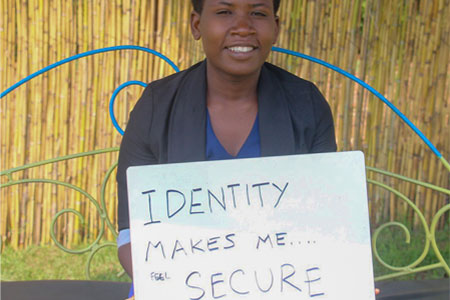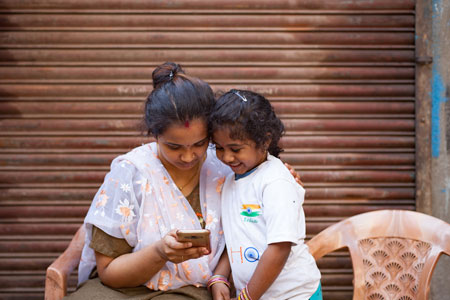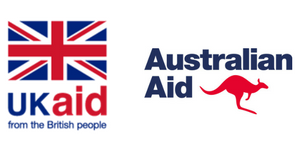More than 230 million women and girls across the Commonwealth do not have access to any form of government-recognised identity. Official proof of identity (ID) is fundamental to a woman and girl’s ability to enforce their rights and to secure access to a wide range of vital services such as mobile connectivity, healthcare, education, social protections and financial services.
At the GSMA, we believe that mobile technology can play a vital role in bridging the ‘identity gender gap’, and through our participation in the Commonwealth Digital Identity initiative we are helping mobile network operators (MNOs) and the international community understand the specific practical, economic, cultural and policy-related barriers that women and girls are likely to encounter when registering for ID, or using ID to access vital services in their own name.
We’ve undertaken market analyses, developed policy insights and recommendations, and explored end-user attitudes, drivers and requirements for digital identity solutions. While every market presents its own opportunities and challenges for MNOs and other stakeholders, our research has highlighted a number of important cross-cutting lessons that are shaping this space Here are five of our top insights from this work:
Identity documents are highly valued
For both men and women, official forms of ID are aspirational and desirable, and have both functional and emotional value. They provide more inclusive access to services, allow greater freedom of movement, act as a safeguard against various forms of exploitation, and contribute to higher levels of social, economic and civic participation. But they also anchor individuals to their national identity, provide peace of mind when carrying out day-to-day activities, and can even confer social status. As our end-user research highlights, when the benefits of ID are clear to citizens, enrolment rates increase. There are opportunities for MNOs to make the value of official ID even more salient, for instance by delivering identity-linked mobile services that are designed to improve the lives and livelihoods of women and girls.
There is a complex gender narrative associated with identity
Research participants agreed that women and men have an equal right to national ID. Beneath this, however, prevailing gender inequalities and social norms can reinforce a widely-held assumption that compared to men, women have less practical need for ID. Women are often perceived to be less threatening than men at security checkpoints, they tend to travel less and work nearer to home in order to manage childcare and household responsibilities, and the informal economy roles often filled by women do not usually require or provide ID. The lack of urgency to register for ID is further complicated by the fact that many women are unable to leave their home to travel to enrolment centres, or less willing to navigate lengthy, complex, and often arduous enrolment processes.
Legal or policy-related barriers also affect women’s access to identity
Discriminatory laws and policies can also create challenges for women. ID registration provisions that require individuals to present a witness, late fees and short registration periods – alongside a lack of localised identity registration points – means that many women are unable to obtain an identity even when they aspire to do so. We have found that policies are most likely to create barriers for women’s and girls’ access to ID when they (1) lack specificity, clarity and completeness; (2) contain explicit gender-biased provisions; (3) introduce restrictive legal requirements and (4) are inconsistent.
Engaging with customer trust and data security is essential 
When a country embarks on a digital transformation journey without adequate privacy or data protection frameworks, they are likely to face calls to introduce better or new consumer safeguards. Our end-user research found that organisations tended to be trusted over individuals, with participants in Nigeria, Rwanda and Bangladesh having few concerns about the security of their data at an institutional level. In contrast, there was more varied trust in frontline individuals who handle personal data, such as local mobile agents (here, trust was based on personal relationships with individuals, and less on institutional affiliation). These concerns were not prohibitive, but merit consideration and the development of robust oversight, accountability, and reassurance processes. Overall, stronger regulatory policies and practices that promote transparency in how someone’s personal data is used and simple tools for consumers to make meaningful choices about their privacy can help increase consumer trust.
Public-private partnerships have an important role to play in advancing access to ID
Our market analyses show the critical role that several governments have played in widening access to official ID. The Government of Zambia developed a National Strategic Action Plan for Reforming and Improving Civil Registration and Vital Statistics, while the governments of Malawi and Uganda have made impressive strides in improving access to birth registration. There are clear opportunities for MNOs to partner with governments to increase the reach of national identity programmes and improve service delivery. In Nigeria, Rwanda and Bangladesh, end-users felt that the ability to enrol for a NID through a local MNO agent would be transformative for women, as it would bring enrolment services closer to communities and make them much more accessible to those facing time, travel or resource constraints. In Malawi, MNOs could leverage their mobile money expertise and the newly-established Universal Beneficiaries Register to deliver targeted social security benefits to women in hard-to-reach areas.
The GSMA Digital Identity team is committed to supporting focused research and advocacy work that enables MNOs to deliver the benefits of digital identity to the most marginalised communities. If you are a GSMA member, policymaker or development agency seeking to learn more about the research and advocacy work we have delivered to support the Commonwealth Digital Identity Initiative, please visit our webpage or contact the Digital Identity team at: [email protected].
The Commonwealth Digital Identity Initiative is funded by the UK Department for International Development (DFID) and the Australian Government (DFAT), and is supported by the GSMA, its members, World Bank and Caribou Digital




